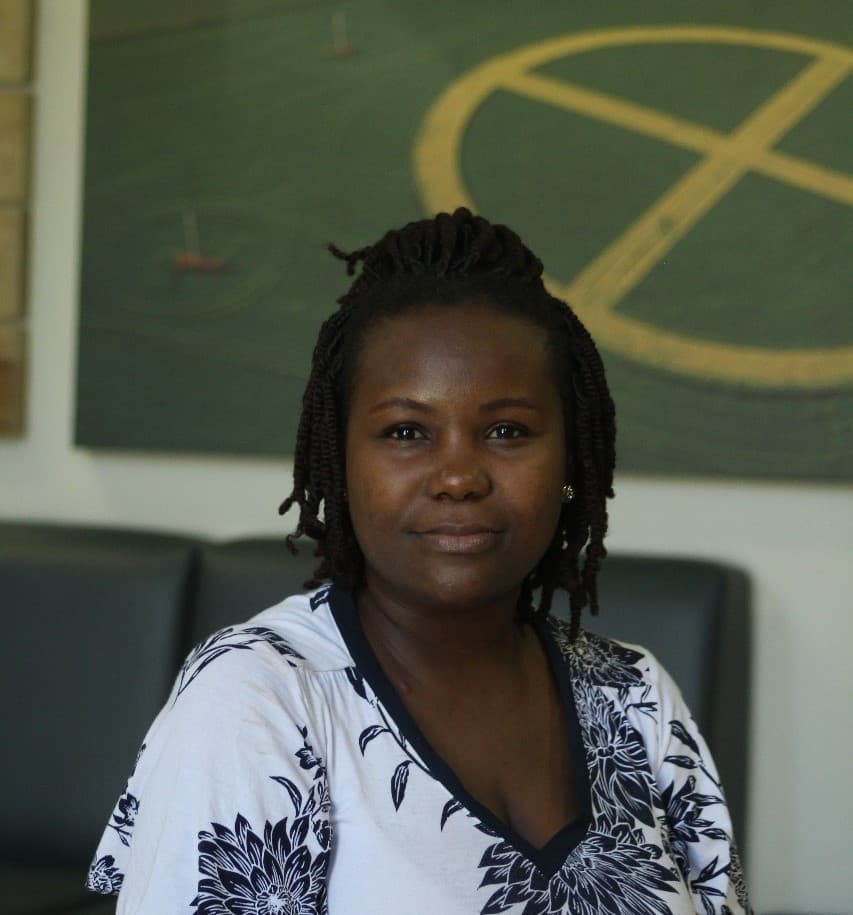South Africa's strong food security policies still fail to put food on the table

A study by Dr Sandra Boatemaa (pictured) and colleagues Dr Laura Pereira and Dr Scott Drimie have pointed to why SA’s food-security policies have not lived up to their promise
South Africa can rightly boast of a rich array of policies designed to tackle the country’s high levels of food insecurity, but for all their virtues these policies have not been able to stop millions in the country from going hungry.
According to researchers affiliated to the national Centre of Excellence in Food Security (CoE-FS), the country’s 17 policies directly related to food security – out of the 80 policies that they have identified as related to the country’s food system as a whole – are comprehensive. In a recent article, Dr Sandra Boatemaa, Dr Laura Pereira and Dr Scott Drimie of the Centre for Complex Systems in Transition (CST) at Stellenbosch University point out that the country’s food-security policies cover everything from the support for land reform and the provision of social grants, to the boosting of field crop production and the provision of nutrition education.
But the real-world impact of these policies has been mixed, say the authors in their paper, Addressing Food and Nutrition Security in South Africa: A review published in the African Journal of Agricultural and Resource Economics. Overall, the country is relatively food secure (no empty supermarket shelves, for instance), but at the same time, some 30% of households have reported hunger. Not surprisingly, black and coloured communities bear the highest burden of food insecurity and malnutrition. In addition, the high prevalence of stunting – at least 25% of the country’s children are estimated to suffer from this condition of impaired growth, caused by malnutrition – has been a constant cause for concern.
How then, in the face of the generous suite of policies, is the country still struggling to improve the food security of so many? One glaring flaw, the researchers argue, is that policies appear to have been developed or implemented in isolation.
“The biggest challenge facing the implementation of these policies is the absence of an effective coordination mechanism that can align different responses across sectors,” says Drimie.
That translates into sometimes contradictory or conflicting food-security policies developed by different government departments, little coordination among government departments, and limited engagement with non-government stakeholders. “Or you have different departments implementing different parts of the same policy,” observes Boatemaa, a postdoctoral fellow whose research with the CST is funded by the CoE-FS. “And these departments don’t speak to each other.”
Exacerbating the siloed approach to food policy in South Africa, is the lack of a systemic approach of thinking about the South African food system and its related activities as an interconnected and interdependent system
So environment-related policies remain the domain of the Department of Environmental Affairs, with no link to diet-related health outcomes, explains Pereira. Likewise, health remains the exclusive jurisdiction of the Department of Health. “As a result, the relationship between what is produced and imported, and then what is finally consumed and how, is not made.”
Not that there haven’t been success stories from which to take heart and take-home lessons. Capacity building and input provision has boosted food production. Progressive taxation, school nutrition programmes and comprehensive (if individually still modest) social grants have allowed many to put some food on their tables. And micronutrient supplementation, breastfeeding programmes and food fortification initiatives have improved the quality of food that are available.
“The good news is that more innovative work is happening at sub-national jurisdictional level,” notes Pereira. “For example, in cities where some more planning and engagement offers positive signs that, at least in urban planning, food is being taken more seriously.”
related Articles
Greater Cape indigenous foods back on the map with groundbreaking partnership
Pickled veldkool. Photo: Loubie Rusch. A groundbreaking new partnership between the DSI-NRF Centre of Excellence in Food Security (CoE-FS), Local…
Breede River Municipality hosts unique food security learning journey
“During two sunny winter days in early May, the Breede River Municipality (BVM) hosted a ‘learning journey’, an innovative…
Unique food and nutrition journey
“Worcester was recently the location of a ‘learning journey’ where participants gained first-hand experience of challenges in the town’s food…



